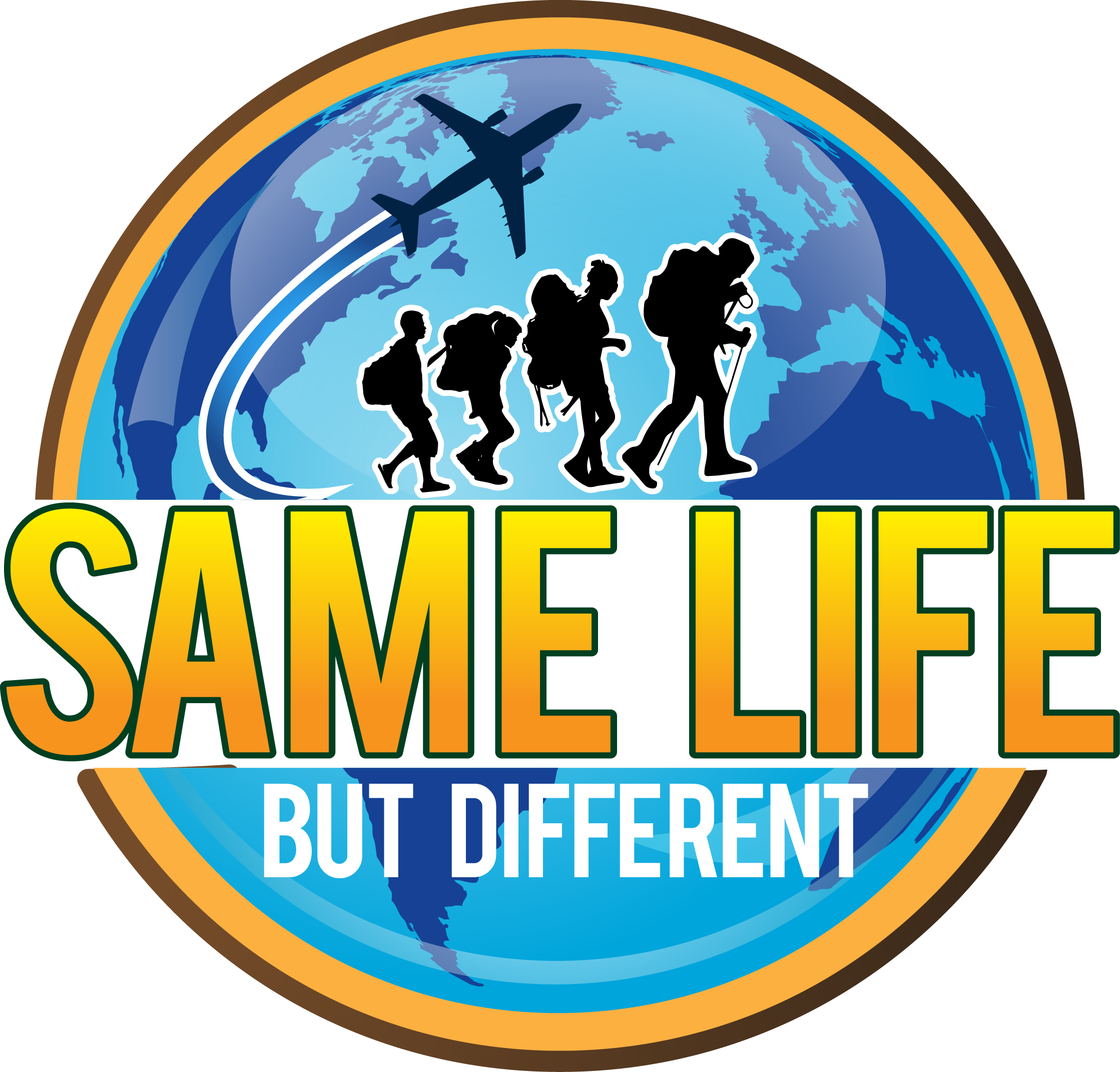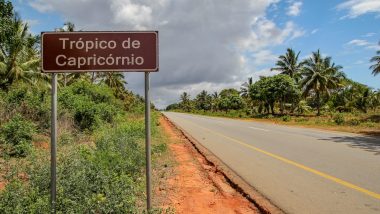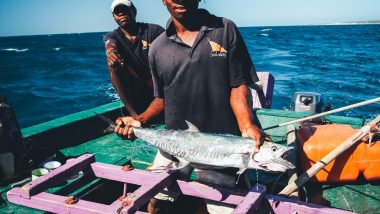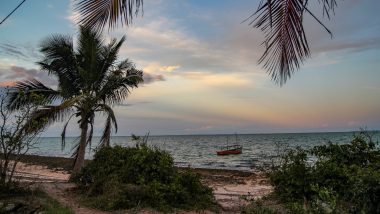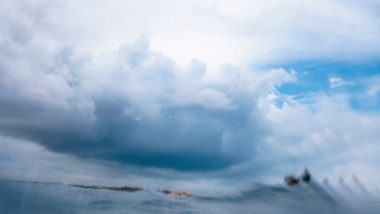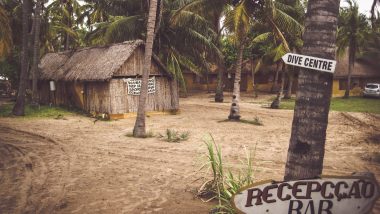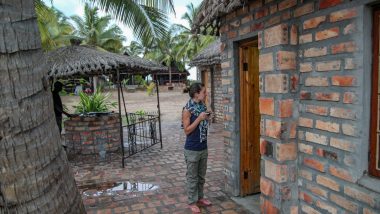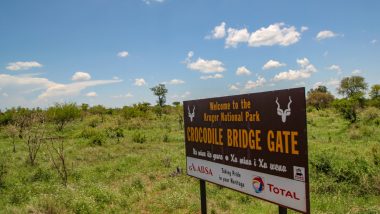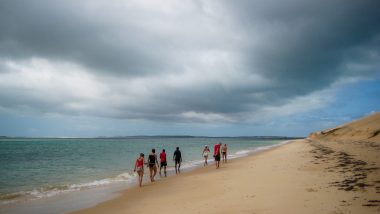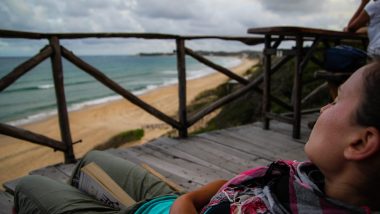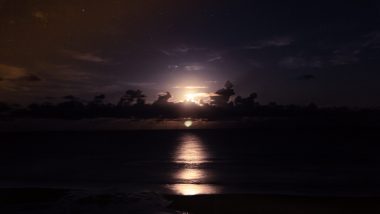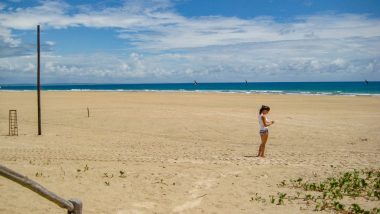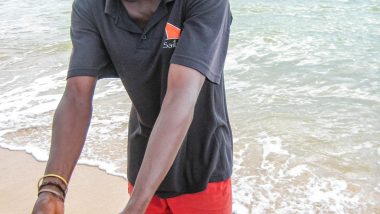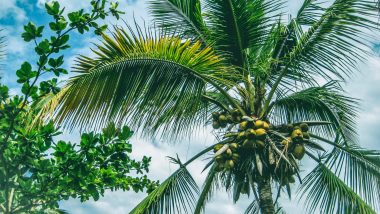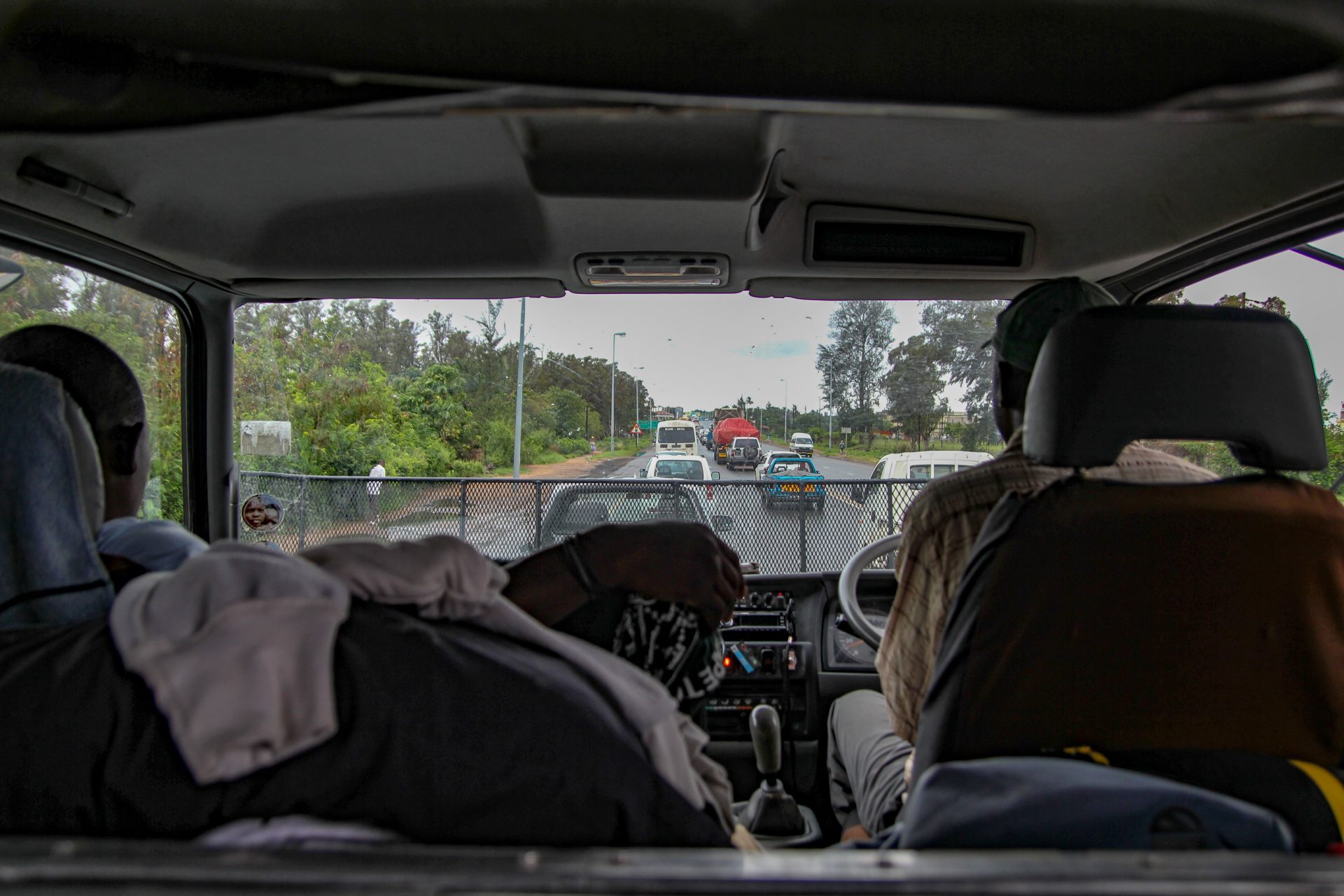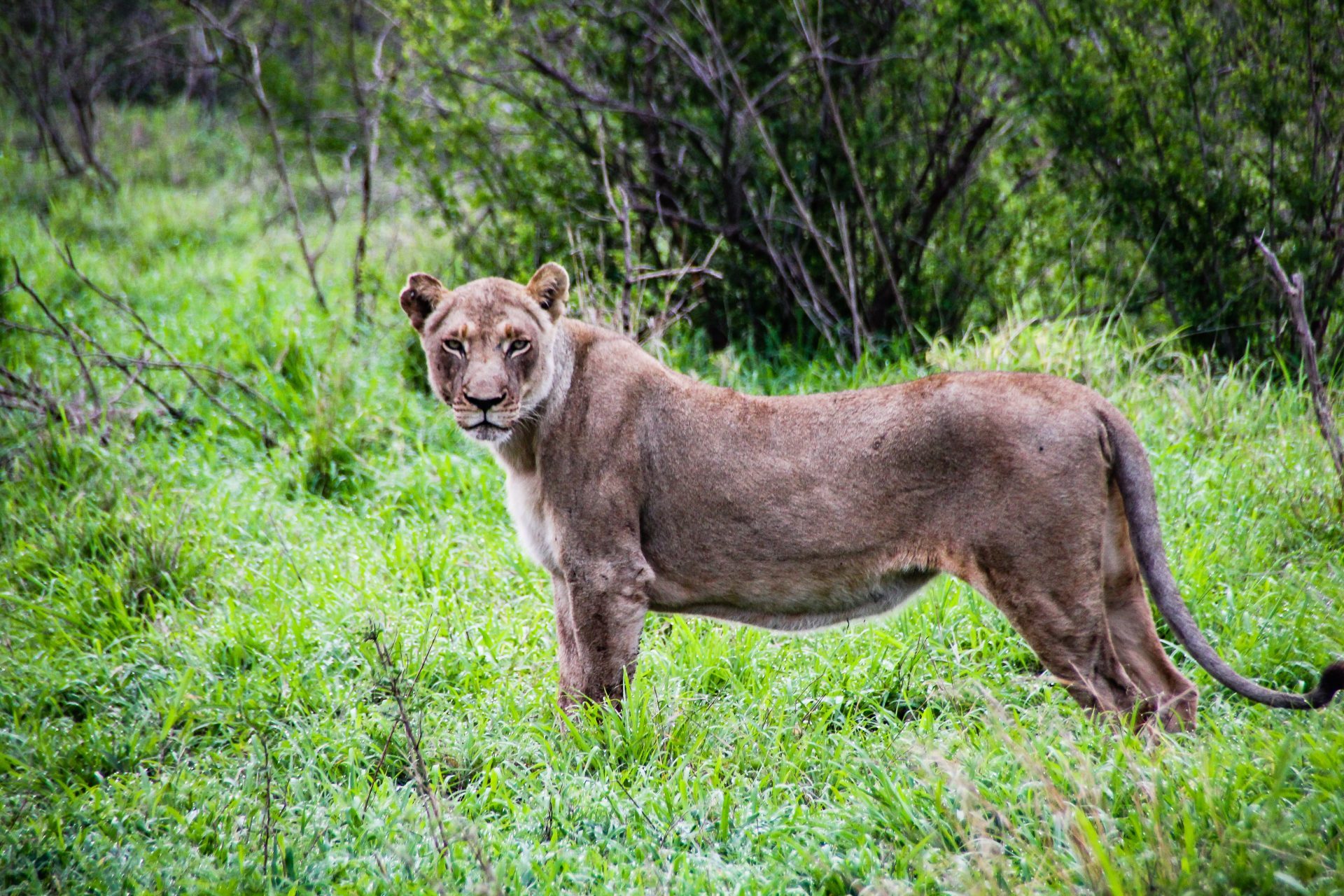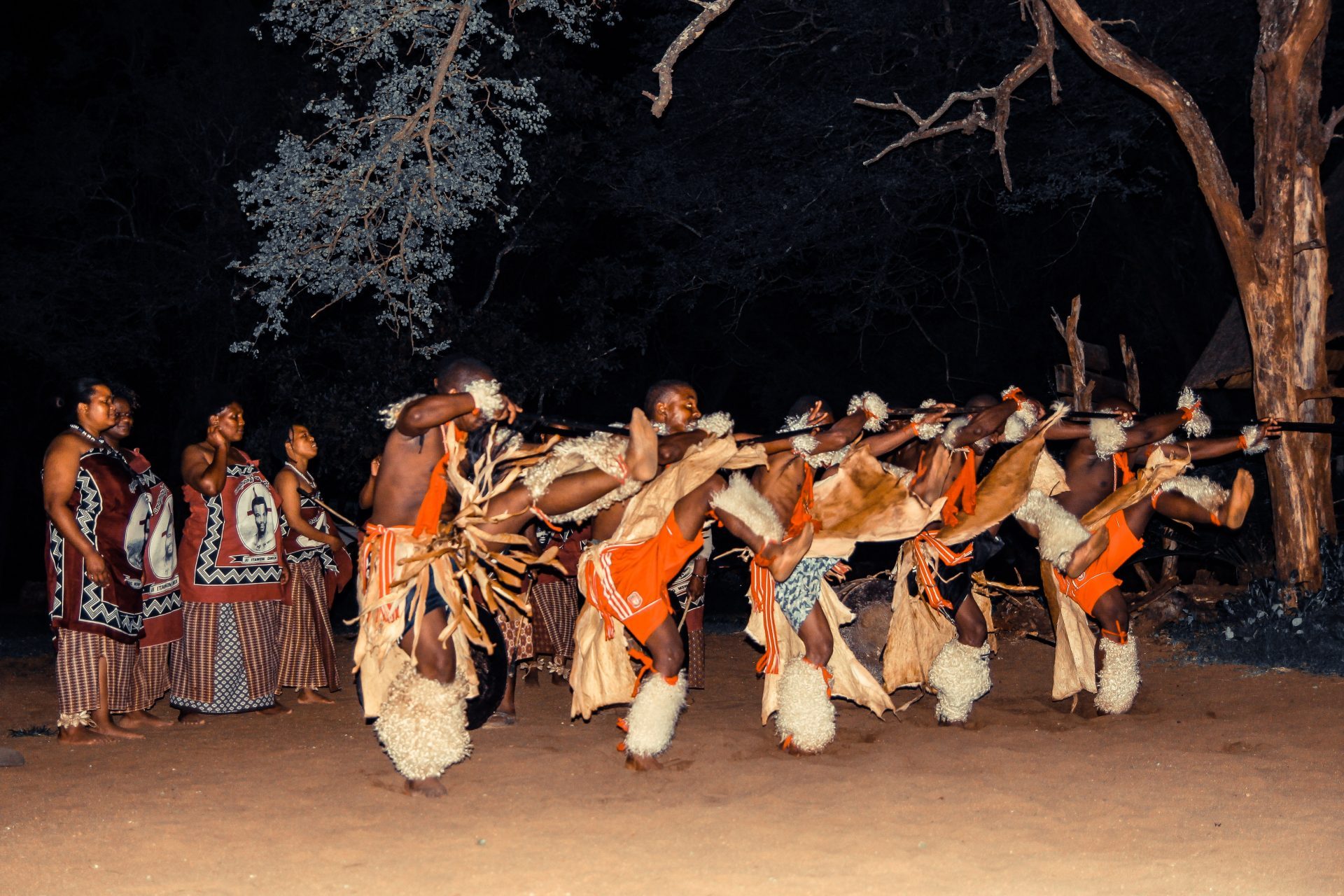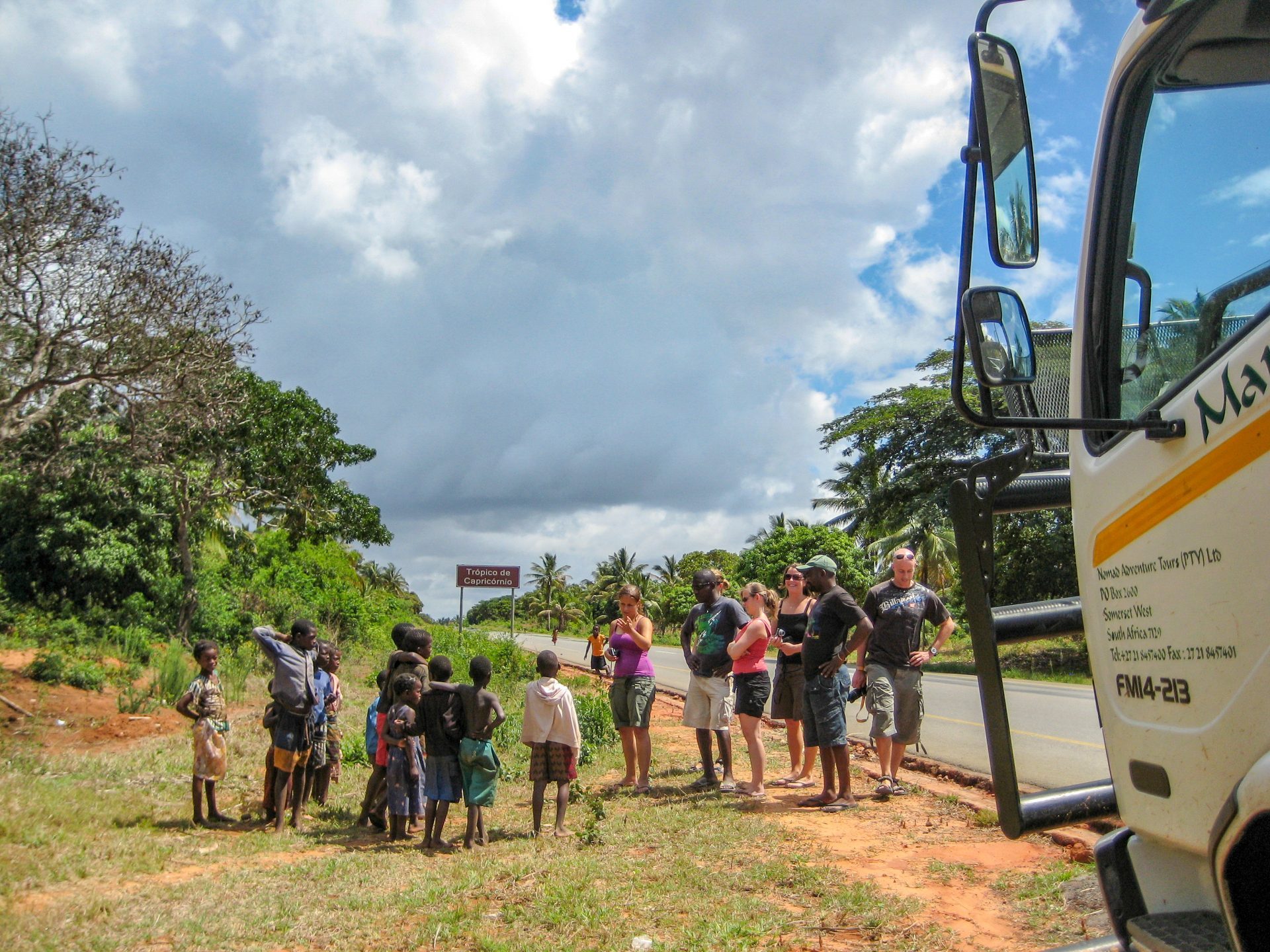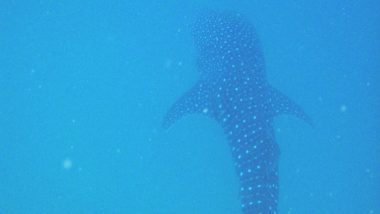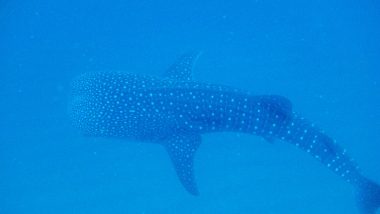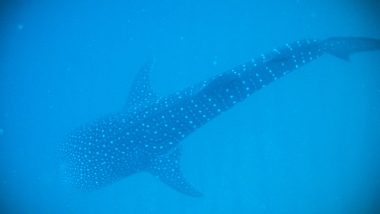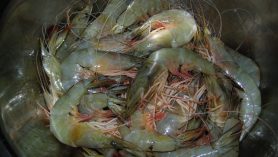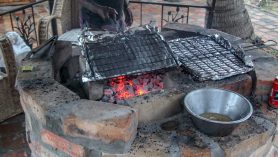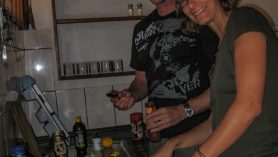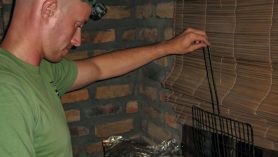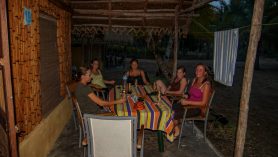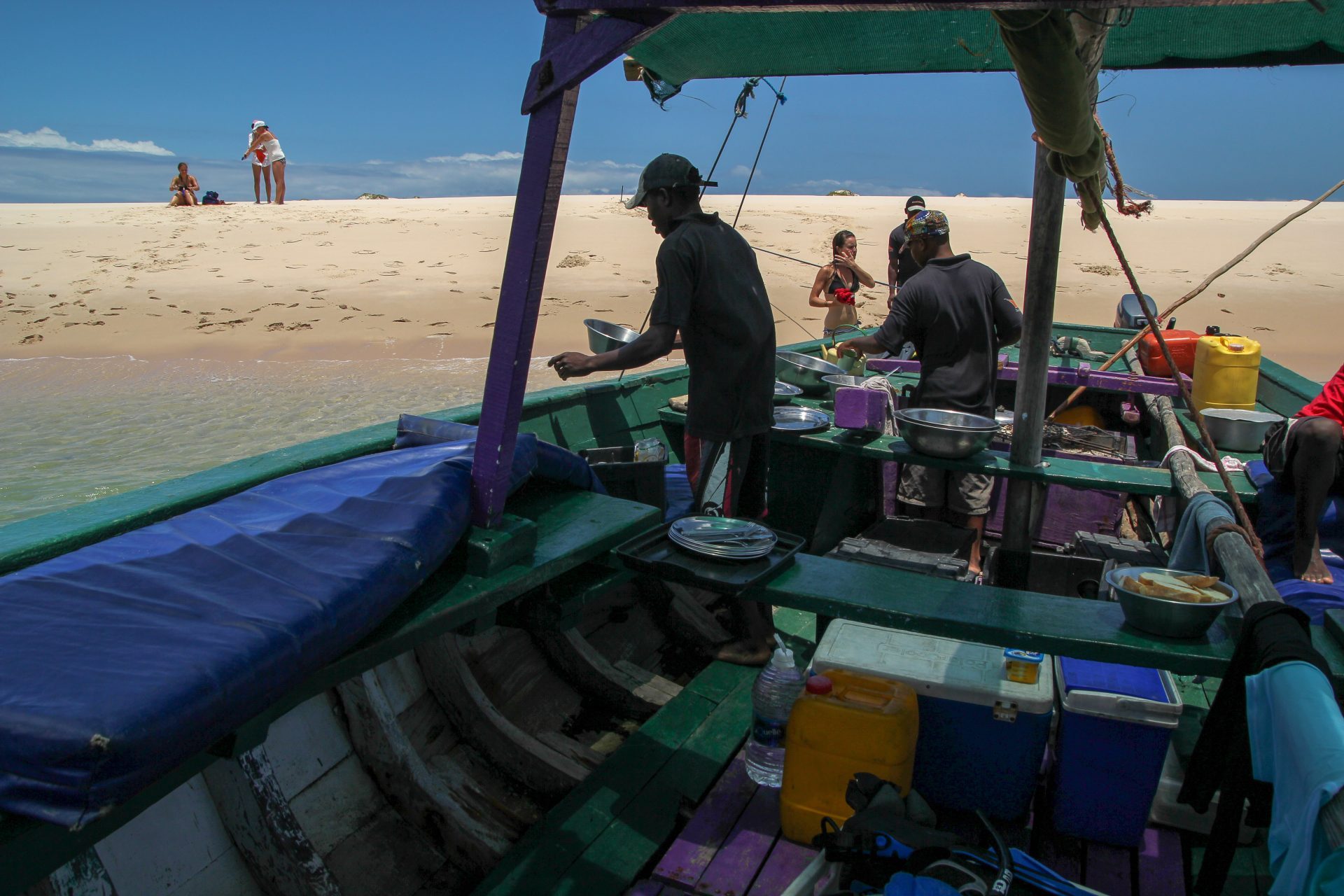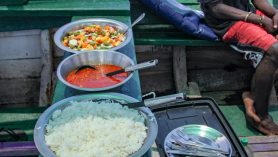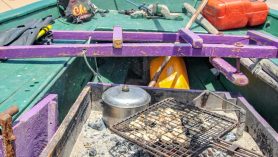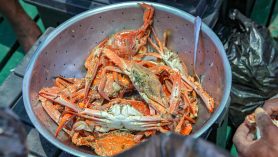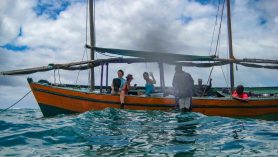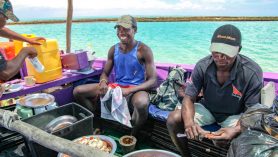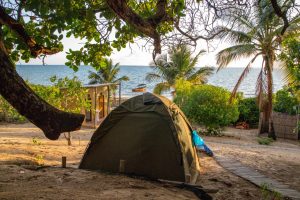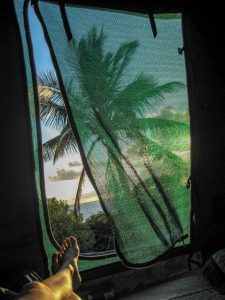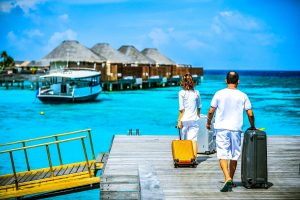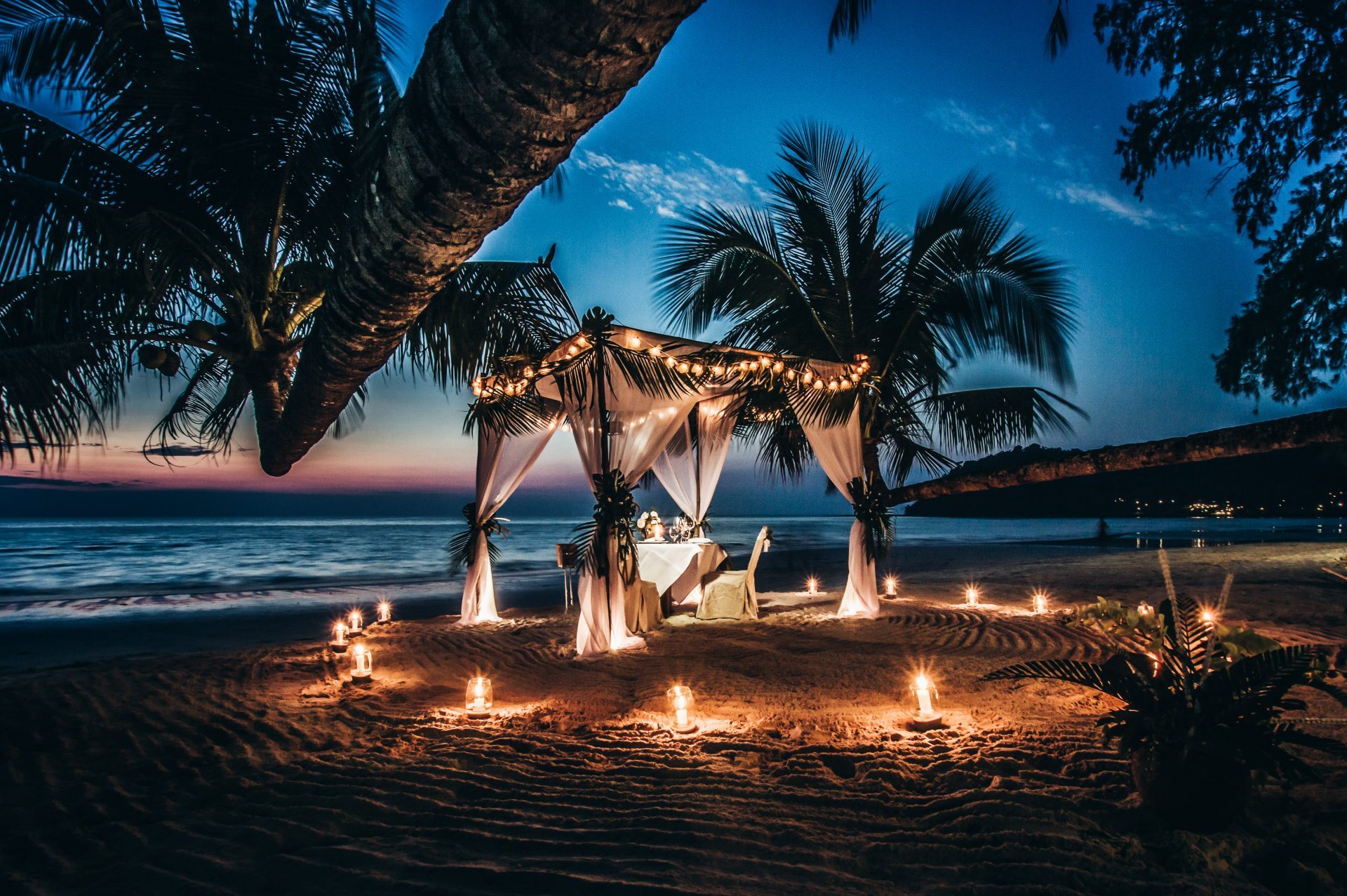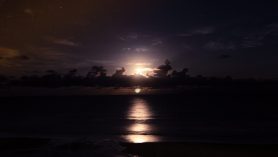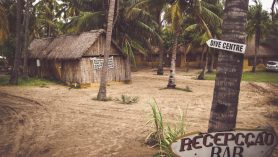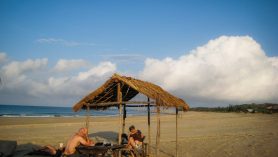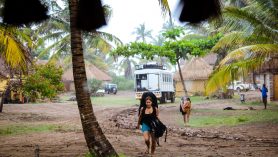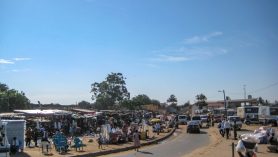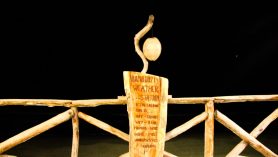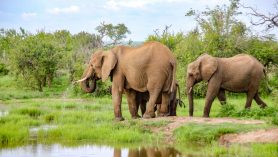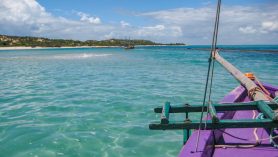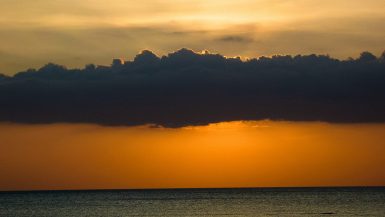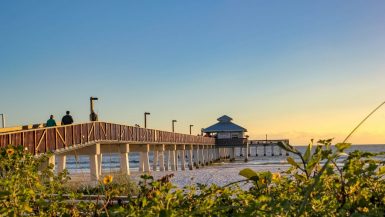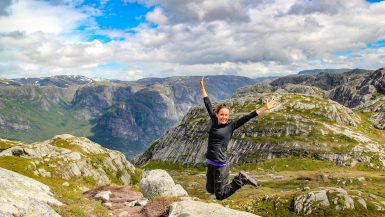Umboso weSwatini
After crossing the border, and leaving South Africa and the Kruger National Park behind us, we were suddenly in the petite kingdom of Swaziland. Or Umbuso weSwatini that is the official name nowadays.
Mswati III, the king, decided that the name had to change. He did this to mark the final liberation from the country´s colonial past.
Even though the name has changed we will call it by its former name in this post as this was the case during our visit.
Absolute monarchy
Swaziland is a rather small country with a population approximately 1.6 million situated between its neighbors Mozambique and South Africa.
The country is an absolute monarchy meaning that the king has total authority of the laws, a lot like Brunei in many ways.
Polygamy is also accepted, and as the ruler of the country it is only natural that you should have 15 wives and 23 children.
Diverse country
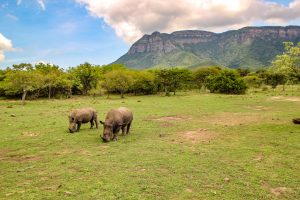 Swaziland has a wide variety of landscapes with rainforests and mountains in the northwest and savannahs in the east.
Swaziland has a wide variety of landscapes with rainforests and mountains in the northwest and savannahs in the east.
Just because there is no coastline does not necessarily mean that there are not plenty of holiday activities to choose from. You can go hiking in the mountains, track wild animals or try quad or mountain biking.
And having no ocean does not mean having no water. Swaziland also have some more adventurous activities.
There is some cool white water rafting in the Great Usutu River or why not go “kloofing” (canyoning) in the Holomi Waterfall.
Birds
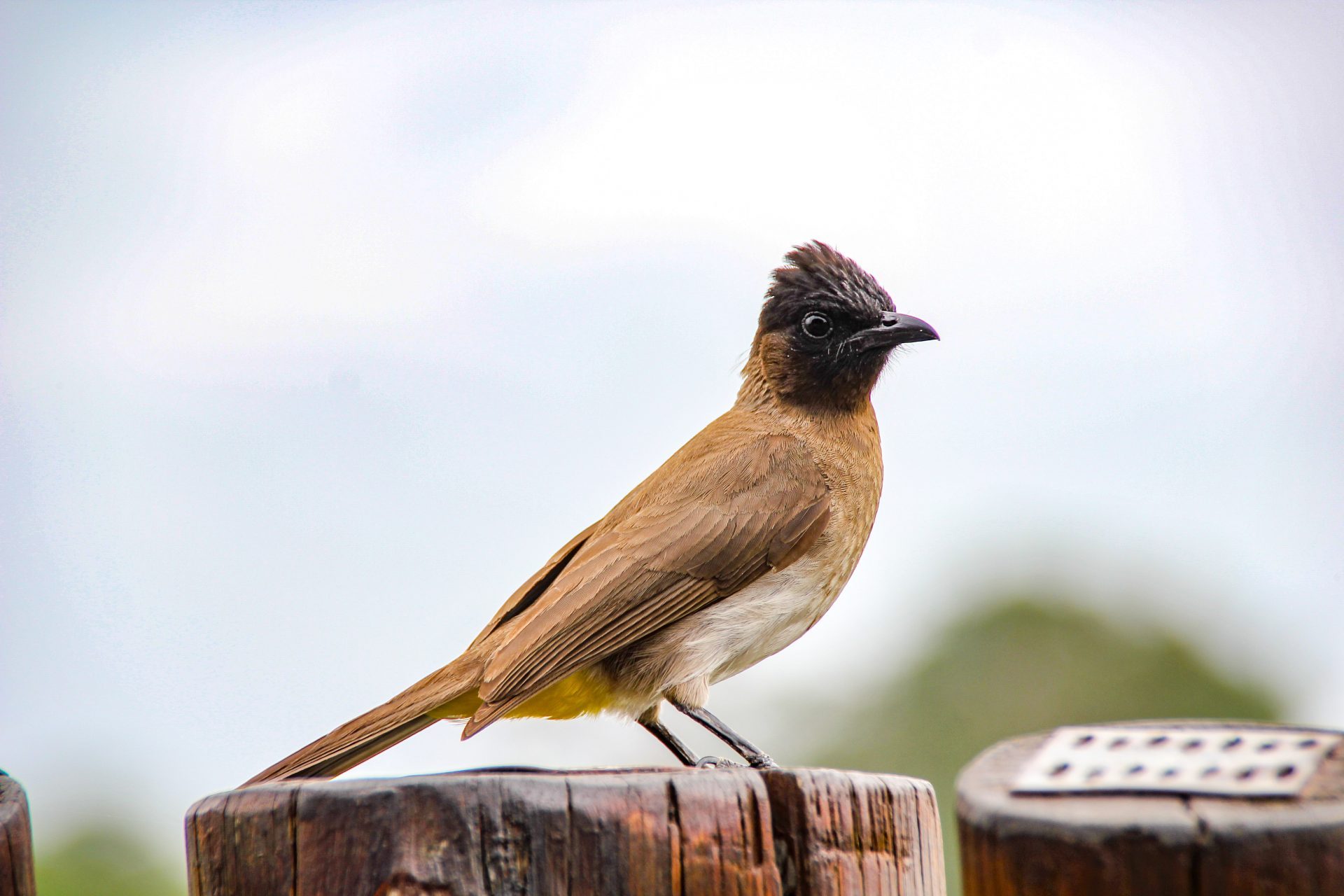 Or if you are into birds, well, then you will have about 500 different species to look for. Horse riding and cultural tours, there will be plenty to keep you occupied during your stay for sure.
Or if you are into birds, well, then you will have about 500 different species to look for. Horse riding and cultural tours, there will be plenty to keep you occupied during your stay for sure.
We did nothing
So, which of the above attractions did we do?
None actually, as we only stayed two days.
The strange thing is that it did not feel like we missed out on so much to be honest as our main goal with the trip was Mozambique.
Swaziland probably is a fantastic country to travel in but it has never been one of our bucket-list-must-go-to-places. Our main goal with this trip was definitely Mozambique, it just seemed a lot more exciting.
But, our short visit in Swaziland was by no means a pointless one. We saw lions!
Hlane National Park
The Hlane National Park (or Game reserve as it is also called) is the largest protected area in Swaziland. It is situated in the northeastern part of the country and bordering Mozambique.
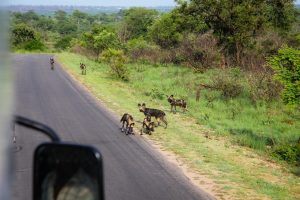
The 22 000 hectares of national park is home to lions, rhinos, elephants, giraffes, hyenas, crocodiles and hippos. Even leopards and cheetahs can be seen if you are having a lucky day.
In case you are looking for the “Big Five” this might not be the best place as there are unfortunately no buffaloes in the park.
As in most african national parks your will have the choise of either hiring a guide and a jeep or you can go on your own.
In Hlane there are plenty of self drive game-viewing roads zick-zacking through the park.
Warthogs for breakfast
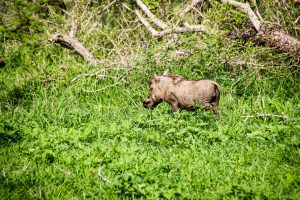 Travelling in a group ment that the natural choise for us was to take the guided, early morning game drive in an open Land Rover. We were not disappointed.
Travelling in a group ment that the natural choise for us was to take the guided, early morning game drive in an open Land Rover. We were not disappointed.
It did not take long before we came across a pride of female lions. Three of them were walking by the fence looking for breakfast.
Our guide explained that the warthog´s living outside the park, on the other side of the fence, had become quite cocky as they learned that the lions could not reach them. This behavior annoyed the hell out of the lions.
By the looks of it it seemed like the lions were doing just fine, even if they could not have juicy little Pumba for breakfast.
They looked very graceful and strong.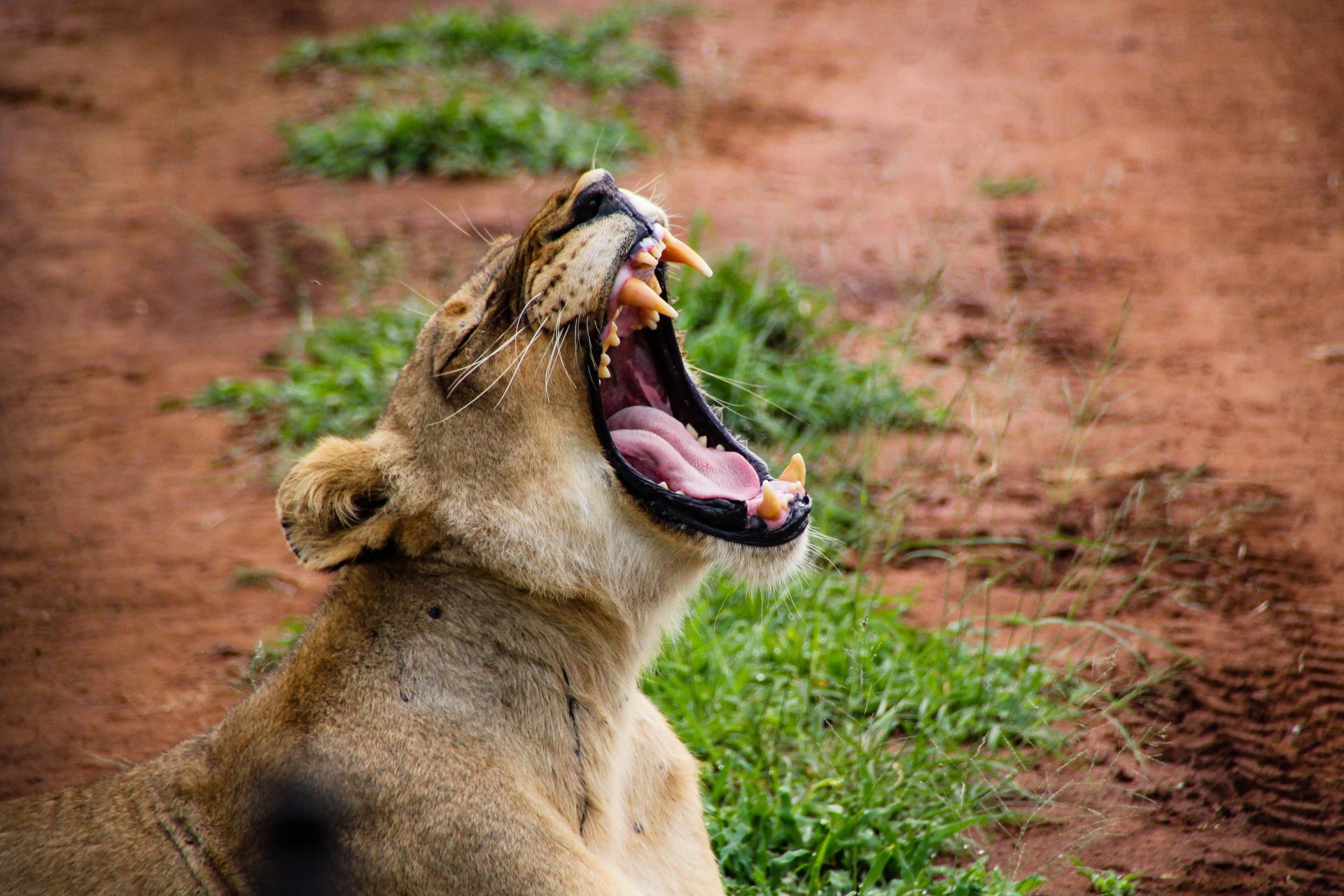
Females hunt, males eat first
If you did not know it already it is the female lions, or lionesses, that do almost all the hunting as the males are occupied protecting their pride.
But when the hunting is done and dinner is served the males feed first, and leave the remains for the females and cubs to share.
A more personal touch
Even if the Kruger Park is a far more famous park than Hlane NP the feeling of driving around in Hlane felt more “exclusive”. This was mainly because of the absence of other tourists.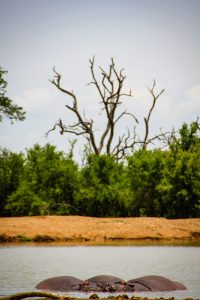
There were tourists of course, but not even close to the numbers of Kruger.
I had heard so much about Kruger before we got there so it was almost a disappointment when the animals were not standing in hordes along the road waiting for me to pass by. Of course a bit exaggerated, but you probably get what I mean.
Kruger was still amazing. Because when you have had low or no expectations before going on a trip, and then suddenly get to experience something unforeseen and great – many times these trips tend to be the most memorable ones.
Journeys that will stay in your memory for ages. (Like the time when we went paragliding with the Peruvian Army).
Alone by a water hole
We did not see as many animals as in Kruger. The best part was instead that we had more solitude.
You could sit pretty much by yourself by a waterhole observing elephant families drinking and bathing and hippos doing what hippo usually do.
Theese big-teethed manure spreaders have an impressive, and kind of messy, (and fun) way of distributing their own excrements.
When it was time to leave the park we felt quite satisfied.
During the past week we had had some pretty fantastic safaris with great memories and loads of photos to bring back home.
We set up camp in a close by campsite and spent our last night in Swaziland watching a Swazi dance show whilst munching barbeque from the braai in the warm evening air. Life could have been worse for sure…
Ocean fever
By now we were longing for the Indian ocean.
Not just because the Atlantic Ocean in South Africa is bloody cold. Having seen so many beautiful images of secluded beaches, sunsets and marine wildlife before we left meant that we had some high hopes when we did our second border crossing in two days.
Bem vindo de Mozambique!
First stop Maputo
Before reaching the beaches we had a one day stop in the capital Maputo.
It was like most big cities in Africa that we have visited – vibrant, lots of people and without that sense that you can walk around wherever you want feeling completely safe.
Nothing to be too alarmed about. If you have ever visited the African continent you should know that common sense will get you far.
Nairobbery
In Addis Ababa the biggest risk was pickpockets.
Nairobi is sometimes called “Nairobbery”.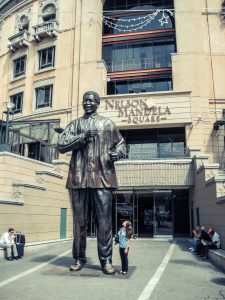
Johannesburg and Cape Town have certain no go areas as well.
It is a shame really but I guess poverty many times makes people do dumb things. All countries differ and I do not want to generalize too much.
And this is by no means a recommendation to skip Africa, quite the contrary.
Africa is an absolutely fantastic part of the world that should not be missed. It is just that we have always liked the parts outside the big-city areas more.
There is less stress, less crime, more meetings and smiles, and it is almost always easier to get around on your own.
Portugese heritage
We parked the bus, that by now started to feel more and more like home, by our hotel close to the city center.
On the way into town we had passed a lot of colonial buildings, reminders of the Portuguese history in the country. The official language in Mazambique is still  Portuguese.
Portuguese.
After some freshening up we went on a short walking tour, had lunch and visited a market. Nothing extraordinary, nothing special.
Maputo was not a place that got stuck in our memories, let us put it that way.
Now let´s get going to the more exciting parts of this beautiful, oft-neglected country!
Strange trees
The next day, once again onboard the bus, the drivers were playing loud African funky music whilst the bus rolled through nicely paved countryside roads lined with trees.
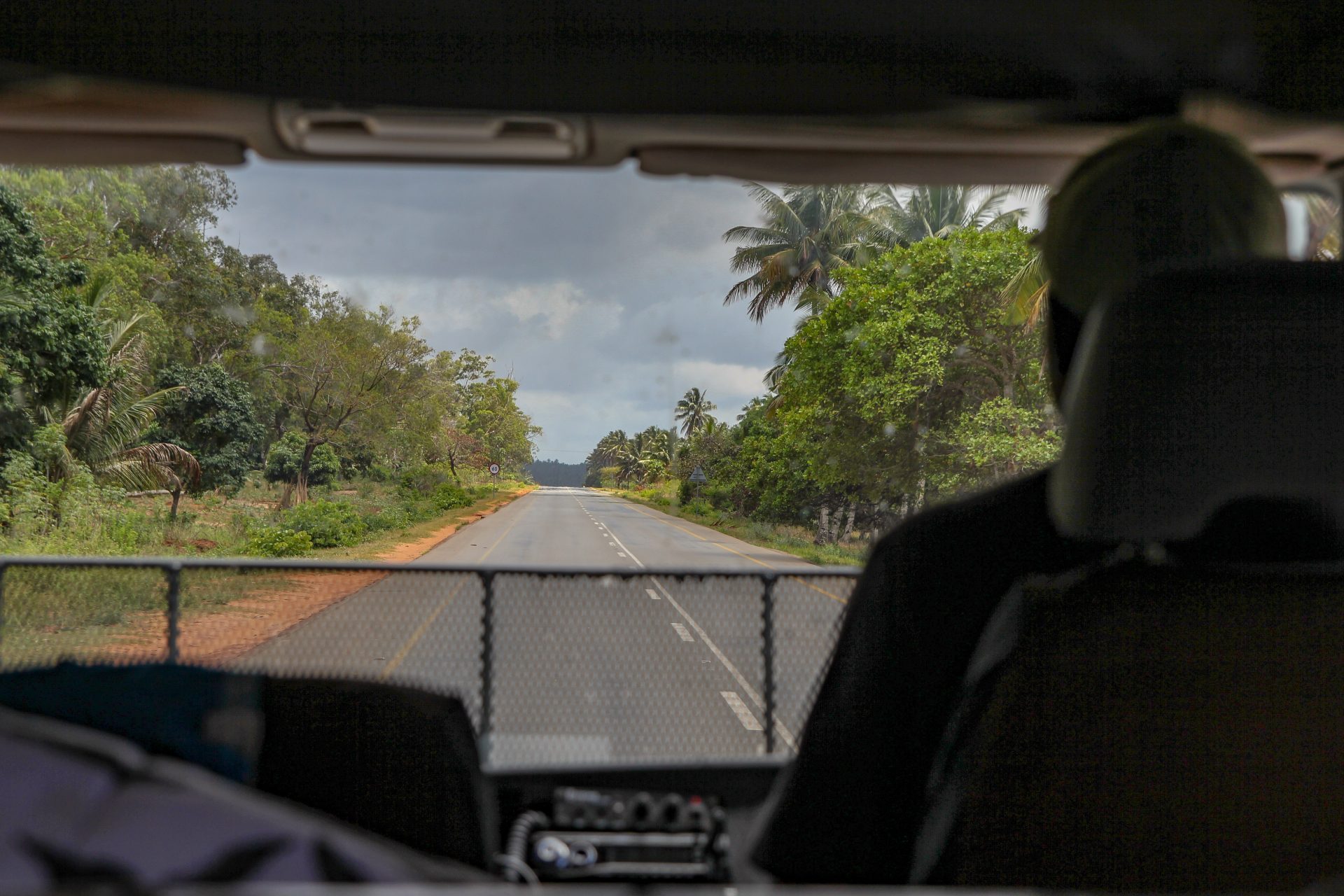 Now it started to feel like real Africa again!
Now it started to feel like real Africa again!
Then strange plastic bags started to appear.
They were hanging in the trees along the road. It first looked like weaverbird nests but it turned out to be bags with cashew nuts.
Stop the bus, get of the bus, buy loads of nuts and get onboard again.
Fresh cashews are delicious.
Country side
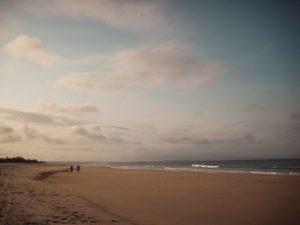
The journey continued.
Outside our windows small villages, coconut and sugar cane plantations passed by. And even though todays ride was quite long the good roads made the trip enjoyable.
Alternating between reading books, talking and listening to music made the day pass quickly.
Suddenly there were palm trees and smell of ocean. We had arrived in Inhambane and the Indian Ocean!
Barra beach was our home for the coming three days, giving us the opportunity to do activities completely on our own.
Anticipation
 There was one particular thing I had been looking forward to most of all. Getting the chance to snorkel or dive with Whale Sharks!
There was one particular thing I had been looking forward to most of all. Getting the chance to snorkel or dive with Whale Sharks!
The reefs around Tofo, just south of Barra, have one of the highest Whale Shark populations in the world, This is also one of the best places where you can snorkel with them, so you do not even have to have a diving certificate.
When we entered the dive shop in Barra the guy in standing in the front desk said:
“Well, you should have decent chances of spotting a whale shark, the past week we have seen them every day.”
Rib boat
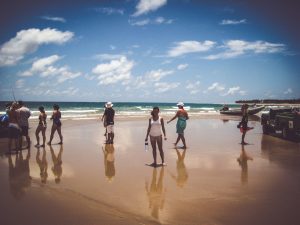 Early the next morning we walked down the beach towards the rib boat that was going to take us on a half-day snorkel trip. Masks, snorkels and fins were provided so we did not have to think about bringing our own gear.
Early the next morning we walked down the beach towards the rib boat that was going to take us on a half-day snorkel trip. Masks, snorkels and fins were provided so we did not have to think about bringing our own gear.
The trip lasts for about 2-3 hours and as always there were no guarantees that we would spot anything really.
Considering the conditions mentioned above, it is safe to say that I had pretty high expectations anyway.
Nothing
It did not take long until the skipper jelled – dolphins!
We love dolphins. Even so – our ocean time was quite limited so I did not make somersaults, and I actually got a bit disappointed when some of the other tourists in the boat wanted to jump into the water and have a look.
“We are wasting time here guys, c´mon!!!” (Even I have a filter sometimes so this was all in my head.)
Sting
Everybody in the boat except grumpy my and the captain jumped overboard.
Suddenly they all came up PRETTY fast as the waters were full of jellyfish tentacles.
The tentacles were luckily not that bad but it gave them enough of a sting that snorkeling was not an option anymore, at least not to for some average dolphins.
Last minute luck
 Away we went, and everybody helped out in the big search.
Away we went, and everybody helped out in the big search.
Nothing, nothing, nothing. And the time past alarmingly fast.
Finally the captain said that unfortunately there was nothing more he could do, we had to go back. The boat turned around and headed for shore.
Then suddenly, a loud shout from the front: “WHALE SHARK!”
Close call
The boat had almost hit the whale shark but luckily the captain managed to steer away in time.
“Make yourselves ready!” – the words we had all been waiting for.
Everybody got their gear organized. And as soon as the boat had stopped, and we had got the ok-signal from the captain, we jumped into the water.
Young but huge
It took a couple of seconds to find my bearings, then suddenly I saw the large, unmistakable shadow far away on my right hand side.
By now I had only one focus, and it was not to care about where Fariba was, (I left that partnership camaraderie on the boat) and I concentrated completely on my swimming as this was one encounter that had been on top of my bucket list for a long long time.
And yes, I am a terrible husband…
12 meters and 20 tons
The whale shark, or (Rhincodon typus), is the largest fish on the planet and they truly are majestic creatures. Reaching up to 12 meters (40 ft) and weighing up to 20 tons, the whale sharks can be a pretty impressive sight.
With its distinctive light colored spots and stripes covering its back it is easy to differentiate it from other sharks.
If you (mistakenly) associate the word shark with danger, do not worry, the whale sharks are also totally harmless as they feed mainly on plankton.
Whale sharks can be found in warmer waters all over the world and can reach an impressive age of over 100 years.
Respect
I have always appreciated wildlife more than humans to be honest and it was with a great amount of respect that I entered the water.
I did not want to get too close and stress the whale shark, and possibly scare it off. At the same time I would lie if I said that I did not want to get a really close look of the giant swimming in front of me.
Even though it was huge, this whale shark was probably quite young, and relatively small as it was “only” 5-6 meters long.
Quickly I got within five meters of the slow moving shark. There I stopped and held my distance as this was close enough for me.
Look but do not touch .
As I was one of the first to get this close I had a short moment of solitude with this amazing animal and I tried to just lay there and observe. Unfortunately it did not take too long before other people got closer. As soon as the whale shark started to feel surrounded it immediately started descending.
No one did anything wrong. It just got a bit too crowded and the whale shark slowly started to swim further and further away from us. A moment later it was just a shadow down in the depths, and then it was gone.
Shared memories
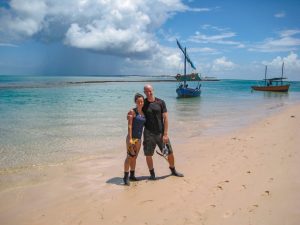 Even if it would have been fantastic to have a encounter that had lasted just a tiny bit longer this was a fantastic experience.
Even if it would have been fantastic to have a encounter that had lasted just a tiny bit longer this was a fantastic experience.
If we would have had more time I had done another snorkel trip. This time it was just not possible and the tour we did had definitely been good enough anyway.
Fariba also got some great views by the way, even though I left her behind. 😉
We partnered up again on the boat, Travelling solo can be nice, but having memories like these to share is even better.
Tiger prawns
When we got back we bought some fresh tiger prawns from a couple of boys walking around camp with a big bucket of today’s catch.
Some chili flakes, garlic and oil later, and ten minutes on the barbeque, we had ourselves a five-star culinary experience.
The day turned into night and whilst the rain pitter-pattered on the roof top of our bungalow we fell asleep, happy and tired.
Dig in
The following morning we started out with a proper workout as our truck got stuck in the mud. (Almost) everybody got out of the bus to help digging!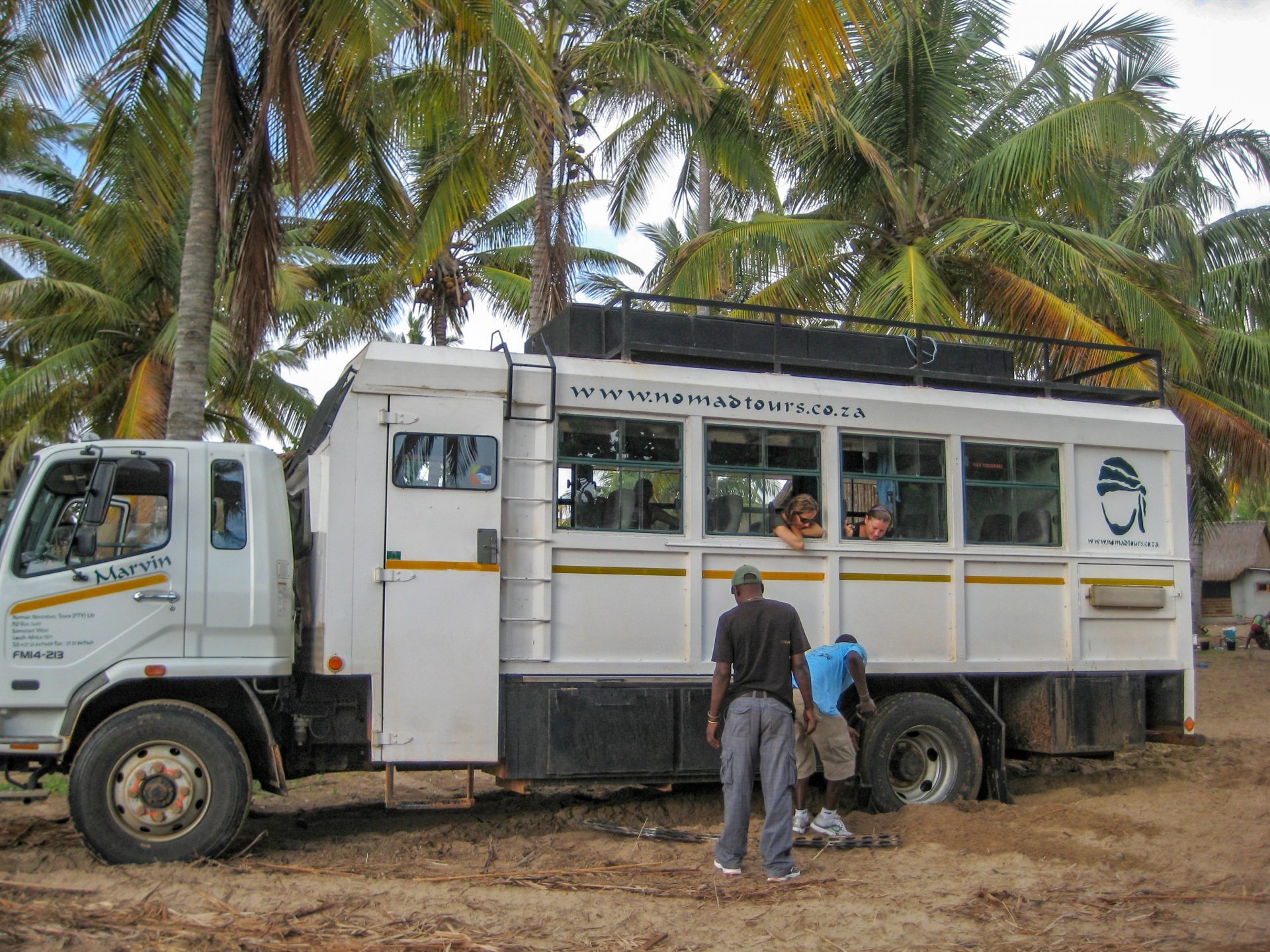
Twenty minutes later the truck was loose and we were on our way again.
This time we only had a shorter trip. Our destination was Vilanculos, the stepping-stone to the Bazaruto Archipelago, one of the largest marine reserves in Southern Africa.
Bazaruto Archipelago
The Bazaruto Archipelago is a group of islands located a couple of kilometers from the mainland. I dare say that many travelers out there have missed this unspoiled gem.
Crystal clear, azure, waters and absolutely brilliant, white beaches.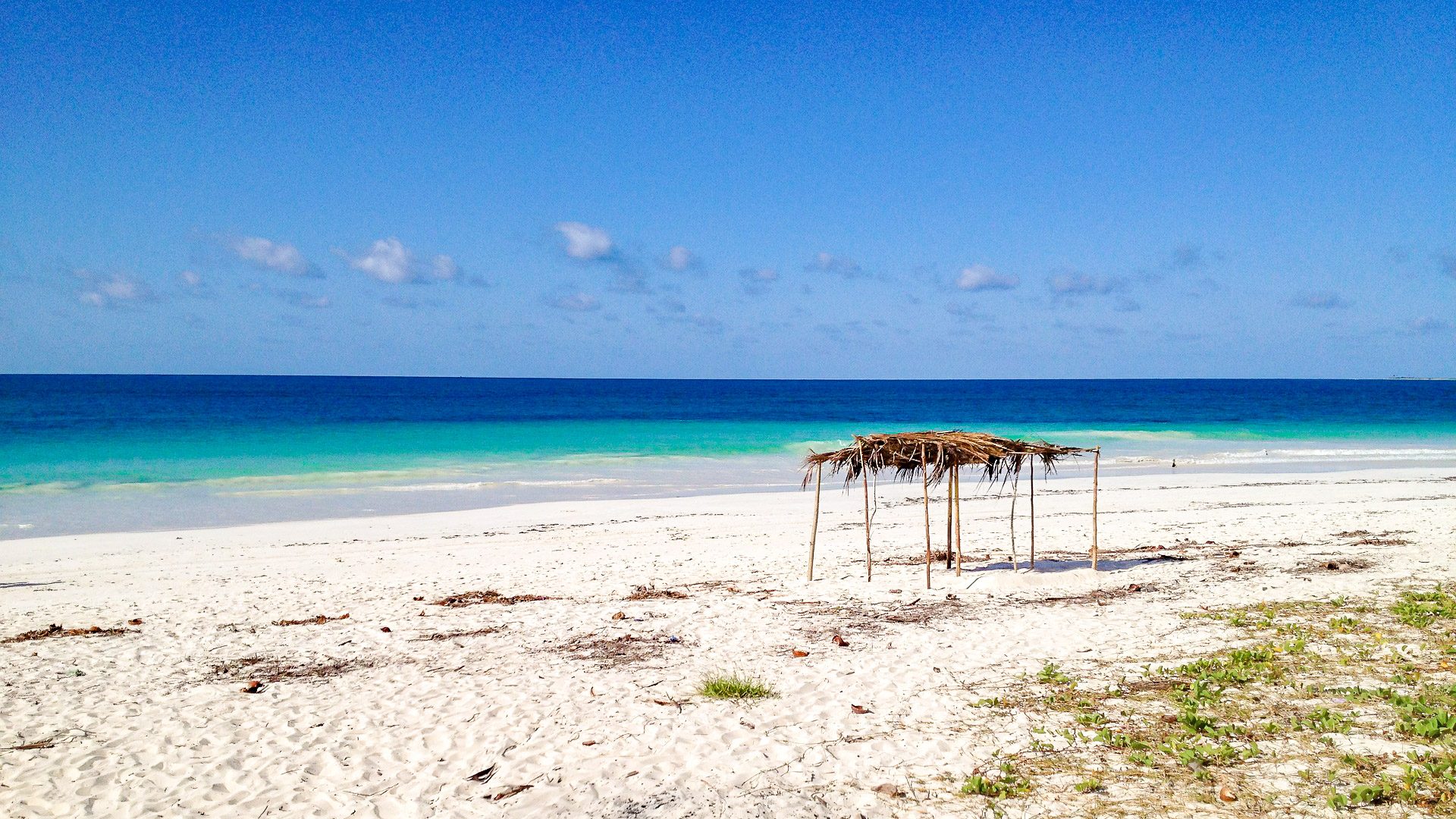
The archipelago consists of five islands in total. The two largest ones are Bazaruto and Ilha de Benguerra.
It is a protected conservation area and marine reserve and goes by the nickname the “Pearl of the Indian Ocean”. (I am pretty sure Sri Lanka also has opted for that epithet.)
Either way, this place is just stunning!
Primitive sailing adventure
We went out on a one night/two day excursion on a Dhow boat safari. The dhow was anything but luxurious but it was sturdy and colorful and that was enough to make us happy.
“A dhow is a traditional one- or two-masted Arab sailing vessel.”
Its inside was painted in purple and it was equipped with a kitchen made of a square wooden box were you could make a fire and put kettles and pans on top to cook.
Boat barbeque
I do not know what the laws in the Western world would say about charcoal grilling on a wooden small boat full of passengers, But who cares. That´s the way the cookie crumbles in Mozambique! And in case of a fire, the water is warm and nice.
Besides, that is the way it works in lots of places around the world. And pretty much all you can do is to adapt.
(Ok, you probably would not ride a tuk-tuk with kids and no seat belts in Europe or in the US. If you are backpacking with children in Asia on the other hand, you are probably bound too sooner or later.)
Lots of sand
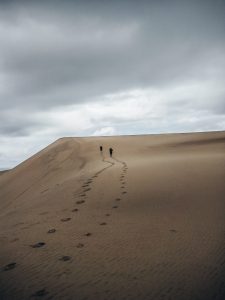 The waters this day were calm and our yacht took us out to some of the most beautiful beaches we have ever visited. I literally had to squint because of the bright light from the sand.
The waters this day were calm and our yacht took us out to some of the most beautiful beaches we have ever visited. I literally had to squint because of the bright light from the sand.
We did some snorkeling and we climbed some enormous sand dunes. After that we went back and had dinner on the boat, and just enjoyed life.
Unfortunately we did not get to see any dugongs. (In case you know what a manatee is, they are very closey related.)
Beach camp
After spending the day on the ocean we put up camp right by the beach.
Putting up a tent is prohibited on the islands so we stayed on the mainland about 11 km north of Vilanculos.
We slept in canvas tents, which were equipped with mattresses and pillows.
There was even a toilet and a basic shower on the premises…
The feeling of solitude was no less because of that as there was no one else there besides from us.
Later in the evening we gathered around the fireplace for dinner. We talked, listened to the waves and watched the starry sky above.
Tired from all activities we went to bed quite early. With the soothing sounds from the ocean and the nature outside, needless to say, I soon slept like a baby.
If money is not a problem
So what if you hate sleeping in tents and you must eat on a proper table? Are there any other options so you too can explore the wonders of Bazaruto?
Of course there are. Why not stay in a fancy luxury lodge for example?
It will have everything you desire, but it will probably cost you around 500$/night.
Money that is not well spent according to our travel philosophy (or budget for that matter).
Then you will have plenty of options
The more expensive alternative may offer some extras though.
How about – horse riding along the coast, diving, deep sea fishing and why not top off that exhausting day with an evening spa experience and a gourmet dinner on the beach?
Maybe, possibly, probably, we would have if we could have.
Even so, we like sleeping in tents.
There is something about living a basic travel lifestyle that appeals to us tremendously.
Bye bye
The following day we said goodbye to the Indian Ocean and started our journey back towards Johannesburg again.
We passed through Xai-xai and Maputo. Then we headed west again and crossed the border to South-Africa. In South-Africa we spent our final night close to the town of Malelane.
The last two days we were mainly driving and it gave us plenty of time to relax and absorb all the impressions of our journey.
A journey that we were really, really glad we made!
Taste for more
Especially Mozambique was a memory for life with its out-of-this-world beaches, delicious food and fantastic adventurous atmosphere.
AND because we got to see a whale shark! A big bucket list check on that!
Many countries we have visited. Not all have given us a reason to want to return. Mozambique was not one of them.
Hopefully we shall meet again someday…

